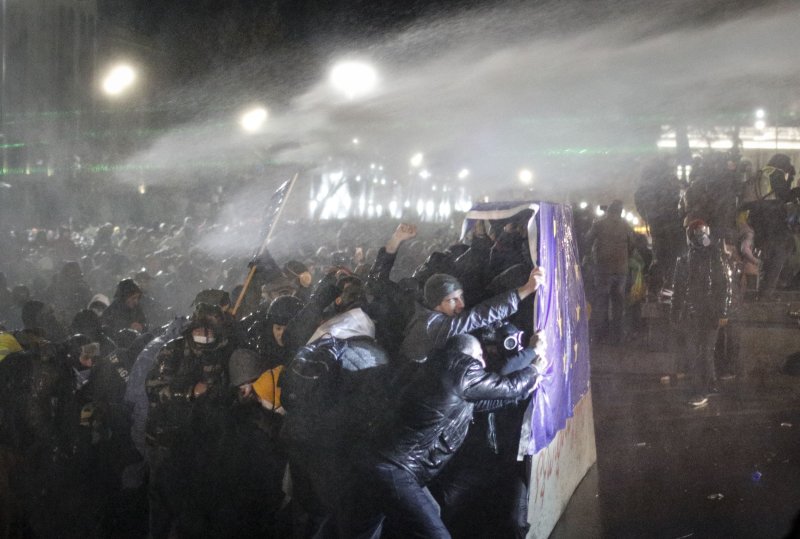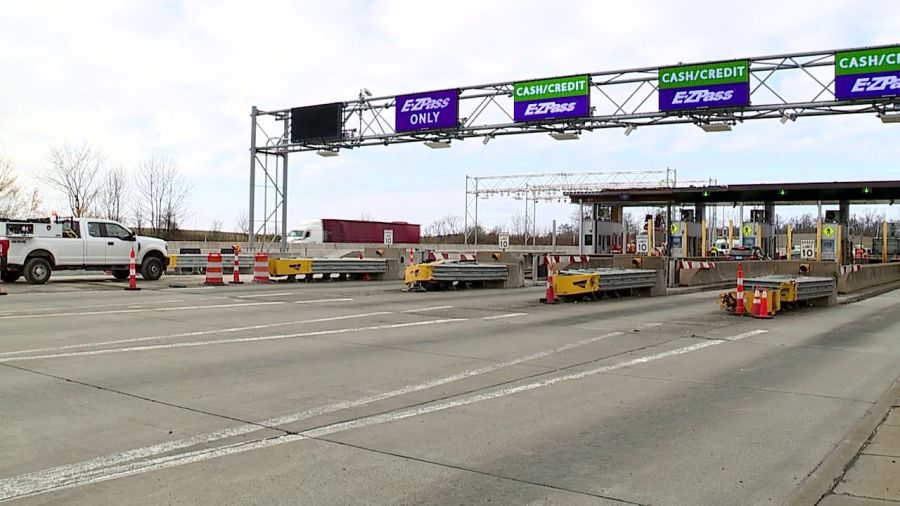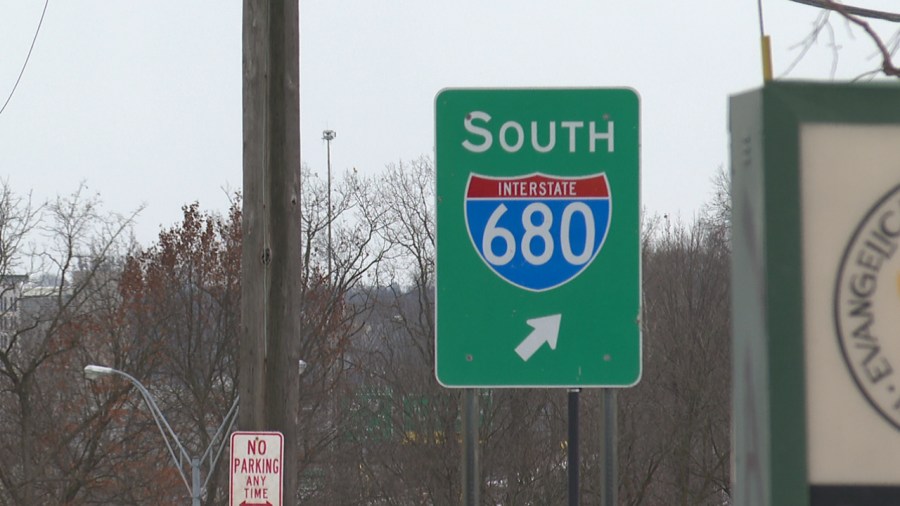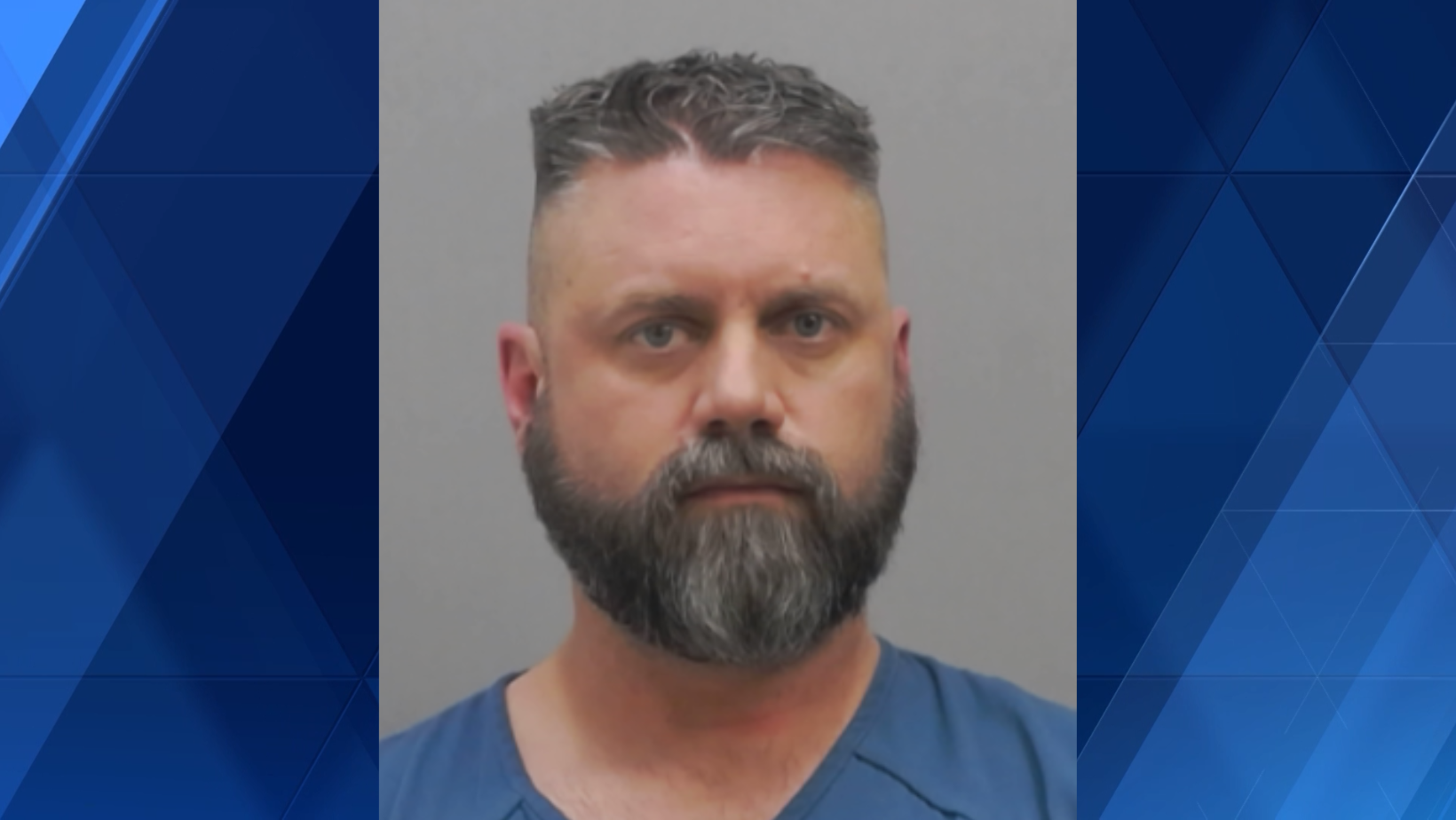Police use water cannons and tear gas to disperse Georgian opposition supporters as they protest in front of the Parliament building in Tbilisi, Georgia, on November 29. The State Department on Thursday imposed visa restrictions against 20 people in Georgia accused of undermining democracy in the former Soviet nation. Photo by David Mdzinarishvili/EPA-EFE
Dec. 12 (UPI) — The United States on Thursday banned entry to approximately 20 people accused of undermining democracy in Georgia, where protesters have clashed with police for roughly two weeks after its Russia-leaning prime minister suspended the former Soviet nation’s bid to join the European Union.
The roughly 20 individuals subject to the U.S. State Department visa restrictions include government ministers, members of Parliament and law enforcement and security officials as well as private citizens.
The names of those blacklisted were not released.
State Department spokesman Matthew Miller warned that the Biden administration was putting additional punitive measures in place, including sanctions, to hold those responsible for undermining Georgia’s democracy accountable.
“The decision by Georgian Dream to suspend Georgia’s EU accession process goes against the promise to the Georgian people enshrined in their constitution to pursue full integration into the European Union and NATO,” Miller said in a statement.
“By suspending Georgia’s EU accession process, Georgian Dream has rejected the opportunity for closer ties with Europe and made Georgia more vulnerable to the Kremlin.”
Protests, which persist nightly in Tbilisi, began Nov. 28 after the country’s Russia-leaning prime minister, Irakli Kobakhidze, announced the pause of Georgia’s EU accession until 2028.
Kobakhidze made the controversial decision in response to the EU declaring October’s election, which Kobakhidze’s ruling Georgia Dream Party won, was marred by irregularities.
The U.S. State Department, citing international and local observers, said after the election that the ruling Georgia Dream Party has been accused of misuse of public resources, vote-buying and voter intimidation.
At least 372 people have been detained during the protests, according to the ministry of internal affairs, which said 150 police officers have been injured.
The United States has already hit more than 100 Georgian Dream-affiliated people and their families with sanctions and visa restrictions, including more than 60 in mid-September.
President Salome Zourabichvili, who has been in the streets with the protesters, is adamant that Georgia will not accept “a Russia future.”
And protests continue despite a brutal crackdown.
“The country has not only begun to restrict human rights, but we have entered a regime that is inflicting real terror on its citizens, youth, and various segments of society, without hesitation to use torture. In other words, this is a Russian-style regime,” she said in a statement on social media.
#U.S #imposes #visa #restrictions #Georgians #undermining #democracy












Leave a Reply